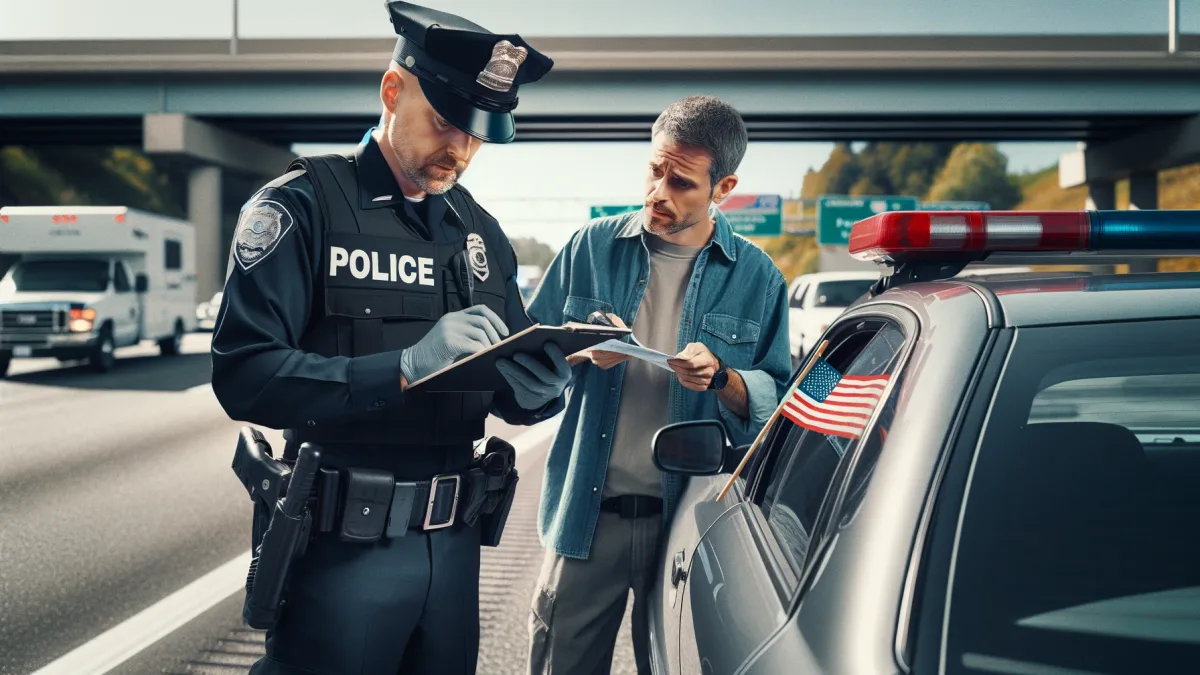In the vast expanse of American jurisprudence, few questions spark as much debate and concern as the powers of law enforcement, especially concerning our privacy and rights. Today, we’re peeling back the layers of one such question that touches the lives of countless Americans: Can police search your car without a warrant? As you traverse the highways of our nation, this question isn’t just academic—it’s profoundly practical. So, let’s dive in, with our legal compass in hand, to navigate these murky waters.
Understanding Your Fourth Amendment Rights
At the heart of this discussion lies the Fourth Amendment of the U.S. Constitution, which guards against unreasonable searches and seizures, ensuring that citizens’ rights to privacy are protected against arbitrary governmental intrusions. However, the application of this principle to vehicular searches introduces nuances that every driver should understand.
The Automobile Exception: A Legal Detour
Legal precedent has carved out what’s known as the “automobile exception” to the warrant requirement. This doctrine acknowledges the inherent mobility of vehicles, presenting a scenario where obtaining a warrant might impractically delay law enforcement, potentially allowing evidence of a crime to vanish down the road, quite literally. But this exception isn’t a free-for-all; police need probable cause to believe that the vehicle contains evidence of a crime.
Probable Cause: The Fuel of Vehicular Searches
Probable cause is a legal standard less stringent than the “beyond a reasonable doubt” threshold required for a conviction but more substantial than a mere hunch. It’s based on factual evidence—smell, sight, or information received—that a crime has been, is being, or will be committed. For instance, if an officer smells marijuana or sees an open bottle of alcohol, this could constitute probable cause to search your vehicle without a warrant.
Consent: The Open Door Policy
Another route through which police might search your car without a warrant is through your consent. If an officer asks for permission to search your vehicle and you agree, the search becomes lawful, regardless of whether there was initial probable cause. Here lies the importance of understanding your rights; you are entitled to refuse consent for a search when asked. However, this refusal should be communicated clearly and respectfully.
Search Incident to Arrest: Securing the Perimeter
If you’re arrested, police have the right to search your vehicle as part of the search incident to arrest doctrine. This search is justified by the need to disarm the suspect and to preserve evidence for trial. However, the scope of such a search has been subject to interpretation and limitation by the courts, typically confined to the area within immediate control of the arrestee.
Special Circumstances: When the Rules Rewire
Several special circumstances can also justify a warrantless search, including but not limited to, exigent circumstances where waiting for a warrant could endanger lives or lead to the destruction of evidence, and inventory searches conducted when vehicles are impounded to account for the vehicle’s contents.
Protecting Your Rights: The Road Less Traveled
Knowing your rights is the first step in protecting them. If you find yourself in a situation where a law enforcement officer has requested to search your vehicle without a warrant, remember:
- You have the right to respectfully refuse consent to the search.
- Asking if you are free to go can clarify whether you’re being detained based on reasonable suspicion.
- Remaining silent is your right; you do not have to provide explanations or justifications for refusing a search.
Conclusion: Navigating the Legal Thicket
The balance between law enforcement’s duty to protect and preserve and the individual’s right to privacy and freedom from unwarranted government intrusion is delicate and complex. While the automobile exception, probable cause, and other doctrines provide a framework for understanding when and how police can search your vehicle without a warrant, each situation is unique.
In the journey through America’s legal landscape, knowledge is your most valuable asset. Understanding your rights under the Fourth Amendment, recognizing the nuances of vehicular searches, and knowing how to assert your rights respectfully can make all the difference. If you find yourself in the thicket of a legal grey area, consulting with a knowledgeable attorney can provide the clarity and direction you need to navigate the situation effectively.
Remember, the law is both a shield and a sword, and in the intricate dance of civil liberties and law enforcement, staying informed and vigilant is your best defense.









Leave a Reply